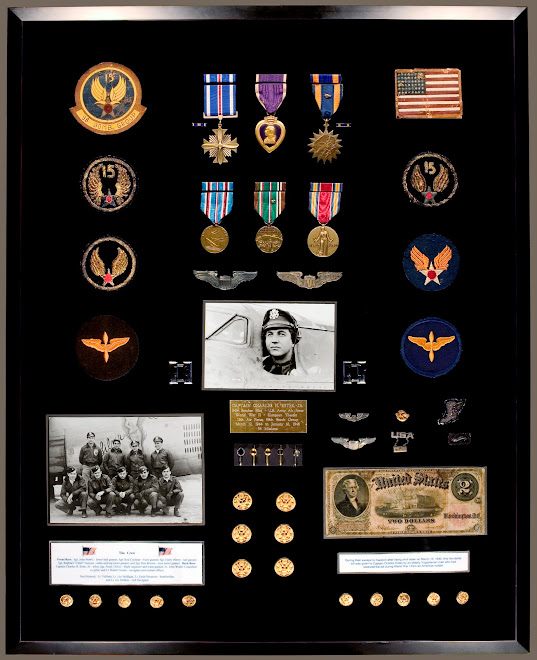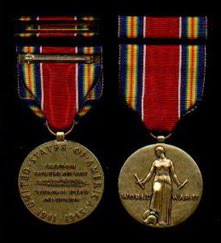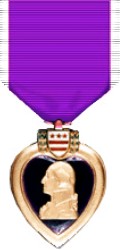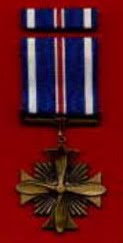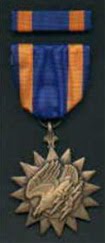(Continuation of Captain Charles Estes's War Memoirs)
"So we were on our way, our dear navigator was
gonna direct this lil' airplane all the way across
the ocean to the Azores, and the people on the crew,
they didn't know anything about Bob Swain,
but I'm sure that they had a question in their
mind, 'Is this guy good enough to fly his way
over there in the dark?' Well, of course they
navigate by the stars at night, and they had
been trained in this, and so Bob did a wonderful
job; and we saw the lights of other airplanes
around us, but we never did see them really.
We finally, when dawn came, could see the
ocean down below us and we could see boats
down there; they were making these white
ribbons in the water as they went through
it. They were carrying arms and ammunition
and stuff of that nature across the ocean to
Europe. And then we began to see other
airplanes around us and we passed a few of
them; they were B17s and we realized then
that the B24 was not the slowest airplane
with four engines on it, and it was a
consolation to us to know at least we
were flying something that had a little
speed to it. I guess our cruising speed
then was 250 miles an hour. Anyway, it
was light and we could look down and see
all these ships in the ocean.
We were about ten hours into our flight
and we were wondering where the Azores
were, and so I called Bob, and I said, 'Bob,
how we doing?' And he said, 'Charlie, we
doing fine.' He said, 'We're not going to get
there in time for breakfast, but if we're not
there in time for lunch, we're in trouble.'
Well, it just happened that we got there just
about lunchtime, and as we flew over the
Azores preparing to land, I noticed these
sheer cliffs that went down to the Ocean
several hundred feet high. And after
we got on the ground and had eaten our
lunch we were gonna spend the night
there and take off the next day for French
Morocco; so we decided to take a little
walk and go over and see those cliffs and
see how high they really were. So we went
over and found the cliffs and looked down
and saw the height of them, and it was just
marvelous the sight. I'll never forget it."
(To be continued.)
Thursday, June 10, 2010
Wednesday, June 2, 2010
The Beginning of a Rather Long Short Snorter
(The Continuation of Excerpts of Captain Charles Estes's Memoirs)
"I recall we took off from Gander Field at twelve o'clock
at night, and just after we had taken off we noticed that a plane
that was flying in the same group that we were flying to the
Azores had crashed. And I can only assume that in the
black of night he forgot to turn off his landing lights,
and they were piercing out through the darkness,
and it made him feel like he was maintaining a straight
and level position where really he had gone into a turn
and lost altitude and his wing tip hit the ground and crashed.
Now we never did find out exactly what happened but
we do know that all of the men and all the people on the
crew died.
I'm just thankful that my instructor had warned me
about night flying and told me that I should never
leave my landing lights on once I had left the ground."
(To be Continued.)
"I recall we took off from Gander Field at twelve o'clock
at night, and just after we had taken off we noticed that a plane
that was flying in the same group that we were flying to the
Azores had crashed. And I can only assume that in the
black of night he forgot to turn off his landing lights,
and they were piercing out through the darkness,
and it made him feel like he was maintaining a straight
and level position where really he had gone into a turn
and lost altitude and his wing tip hit the ground and crashed.
Now we never did find out exactly what happened but
we do know that all of the men and all the people on the
crew died.
I'm just thankful that my instructor had warned me
about night flying and told me that I should never
leave my landing lights on once I had left the ground."
(To be Continued.)
Subscribe to:
Comments (Atom)

